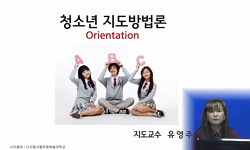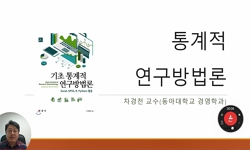In this paper, I offer a reflection on two cases to assess in preliminary manner the viability of an indigenous methodology for Southeast Asian Studies. The first is Kaupapa Maori Research (hereafter KM) as spelt out in the much talked about book by L...
http://chineseinput.net/에서 pinyin(병음)방식으로 중국어를 변환할 수 있습니다.
변환된 중국어를 복사하여 사용하시면 됩니다.
- 中文 을 입력하시려면 zhongwen을 입력하시고 space를누르시면됩니다.
- 北京 을 입력하시려면 beijing을 입력하시고 space를 누르시면 됩니다.
https://www.riss.kr/link?id=A106480280
-
저자
Rommel A. Curaming (University of Brunei Darussalam)
- 발행기관
- 학술지명
- 권호사항
-
발행연도
2016
-
작성언어
English
- 주제어
-
자료형태
학술저널
- 발행기관 URL
-
수록면
55-76(22쪽)
-
KCI 피인용횟수
0
- DOI식별코드
- 제공처
- 소장기관
-
0
상세조회 -
0
다운로드
부가정보
다국어 초록 (Multilingual Abstract)
In this paper, I offer a reflection on two cases to assess in preliminary manner the viability of an indigenous methodology for Southeast Asian Studies. The first is Kaupapa Maori Research (hereafter KM) as spelt out in the much talked about book by Linda Tuhiwai Smith, Decolonizing Methodologies: Research and Indigenous People (Smith 1999). The second case is Sikolohiyang Pilipino (Filipino Psychology, SP), which began to take shape in the late 1960’s and 1970’s in the Philippines. Arguably these are among the most developed efforts at decolonization or indigenization of methodology. I intend to use these cases to explore the factors that made possible the flourishing and stagnating of indigenous methodologies. I shall argue that the broader context of knowledge consumption, not epistemological and methodological concerns, poses the most formidable challenge to the viability of indigenization efforts.
참고문헌 (Reference)
1 Semali, Ladislaus, "What Is Indigenous Knowledge?: Voices from the Academy" Falmer Press 1999
2 Macedo, Donaldo, "What Is Indigenous Knowledge?: Voices from the Academy" Falmer Press 1999
3 Belgrave, Michael, "Waitangi Revisited: Perspectives on the Treaty of" Oxford University Press 2005
4 Kellner, Douglas, "Theorizing Globalization" 20 (20): 285-305, 2002
5 Hudson, Maui L, "The Treaty of Waitangi and Research Ethics in Aotearoa" 6 (6): 61-68, 2009
6 Steedly, Mary, "The State of Culture Theory in the Anthropology of Southeast Asia" 28 : 43-454, 1999
7 Bautista, Cynthia, "The Social Sciences in the Philippines:Reflections on Trends and Developments" 48 (48): 175-208, 2000
8 Bourdieu, Pierre, "The Scholastic Point of View" 5 (5): 380-391, 1990
9 Salazar, Zeus, "The Pantayo Perspective as a Discourse Towards Kabihasnan" 28 (28): 123-152, 2000
10 Baker, David B., "The Oxford Handbook of the History of Psychology: Global Perspectives" Oxford University Press 2012
1 Semali, Ladislaus, "What Is Indigenous Knowledge?: Voices from the Academy" Falmer Press 1999
2 Macedo, Donaldo, "What Is Indigenous Knowledge?: Voices from the Academy" Falmer Press 1999
3 Belgrave, Michael, "Waitangi Revisited: Perspectives on the Treaty of" Oxford University Press 2005
4 Kellner, Douglas, "Theorizing Globalization" 20 (20): 285-305, 2002
5 Hudson, Maui L, "The Treaty of Waitangi and Research Ethics in Aotearoa" 6 (6): 61-68, 2009
6 Steedly, Mary, "The State of Culture Theory in the Anthropology of Southeast Asia" 28 : 43-454, 1999
7 Bautista, Cynthia, "The Social Sciences in the Philippines:Reflections on Trends and Developments" 48 (48): 175-208, 2000
8 Bourdieu, Pierre, "The Scholastic Point of View" 5 (5): 380-391, 1990
9 Salazar, Zeus, "The Pantayo Perspective as a Discourse Towards Kabihasnan" 28 (28): 123-152, 2000
10 Baker, David B., "The Oxford Handbook of the History of Psychology: Global Perspectives" Oxford University Press 2012
11 Fabish, Rachael, "The Impact of Tā Te Māori Rangahau /Methodologies of Māori Research on My Work" (2) : 2016
12 Alatas, Farid, "The Discourse on Indigenisation: Definitions, Criteria, and Pitfalls" Pagesetters Services PTE LTD for Centre for Advanced Studies, National University of Singapore 1999
13 Alatas, Hussein, "The Captive Mind in Development Studies" 34 (34): 9-25, 1972
14 Burgess, Chris, "The Asian Studies 'Crisis': Putting Cultural Studies into Asian Studies and Asia into Cultural Studies" 1 (1): 121-136, 2004
15 Jackson, Peter A, "Space, Theory, and Hegemony: The Dual Crises of Asian Area Studies and Cultural Studies" 18 (18): 1-41, 2003
16 Goh, Beng Lan, "Southeast Asian Perspectives on Area Studies in a Global Age" 15 (15): 45-61, 2010
17 Alatas, Farid, "Some Problems of Indigenization" Dept. of Sociology, National University of Singapore 1992
18 Pe-Pua, Rogelia, "Sikolohiyang Pilipino: Teorya, Metodo at Gamit (Filipino Psychology: Theory, Method and Application)"
19 Pe-Pua, Rogelia, "Sikolohiyang Pilipino (Filipino Psychology): A Legacy of Virgilio G. Enriquez" 3 (3): 49-70, 2000
20 Rutland, Peter, "Remapping the World After the Crisis in Area Studies" 10 (10): 129-136, 2001
21 Chakrabarty, Dipesh, "Provincializing Europe: Postcolonial Thought and Historical Difference" Princeton University Press 2000
22 Szanton, David L., "Politics of Knowledge: Area Studies and the Disciplines" University of California Press 1-33, 2004
23 Covar, Prospero, "Pilipinolohiya: Kasaysayan, Pilosopiya at Pananaliksik" Kalikasan Press 1991
24 Rodriguez-Tatel, Jane, "Philippine Stud ies/Araling Pilipino/Pilipinolohiya Sa Wikang Filipino: Pagpopook at Pagdadalumat Sa Loob Ng Kapantasang Pilipino (Philippine Stud ies/Araling Pilipino/ Pilipinolohiya in Filipino: Redefining Context and Concept within the Filipino Scholarly Tradition)" 12 (12): 110-179, 2015
25 Alfred, Gerald Taiaiake, "Peace, Power, Righteousness: An Indigenous Manifesto" Oxford University Press 1999
26 Navarro, Atoy, "Pantayong Pananaw: Ugat at Kabuluhan: Pambungad Sa Pag-Aaral Ng Bagong Kasaysayan" Palimbagang Kalawakan 1997
27 Tolich, Martin, "Pakeha ‘Paralysis’: Cultural Safety for Those Researching the General Population of Aotearoa" (19) : 164-178, 2002
28 Allwood, Carl Martin, "Origins and Development of Indigenous Psychologies: An International Analysis" 41 (41): 243-268, 2006
29 Said, Edward W., "Orientalism" Routledge And Kegan Paul 1978
30 Jahoda, Gustav, "On the Rise and Decline of ’Indigenous Psychology" 22 (22): 169-181, 2016
31 Mihesuah, Devon A., "Natives and Academics: Researching and Writing About American Indians" University of Nebraska Press 1998
32 Appadurai, Arjun, "Modernity at Large: Cultural Dimensions of Globalization" University of Minnesota Press 1996
33 Mendoza, S. Lily, "Mga Babasahin Sa Agham Panlipunang Pilipino: Sikolohiyang Pilipino, Pilipinolohiya, at Pantayong Pananaw" C & E Publications 241-297, 2007
34 Navarro, Atoy, "Mga Babasahin Sa Agham Panlipunang Pilipino: Sikolohiyang Pilipino, Pilipinolohiya, at Pantayong Pananaw" C & E Publications 2007
35 Huotari, Mikko, "Methodology and Research Practice in Southeast Asian Studies" Palgrave Macmillan 2014
36 Mahuika, Ragimarie, "Kaupapa Rangahu: A Reader" University of Auckland 34-45, 2015
37 Pihama, Leonie, "Kaupapa Rangahau: A Reader" University of Auckland 7-17, 2015
38 Tiakiwai, Sarah-Jane, "Kaupapa Rangahau: A Reader" The University of Auckland 2015
39 Alatas, Hussein, "Intellectuals in Developing Societies" Cass 1977
40 Sta Maria, Madelene, "Indigenous Psychology, Ethnopsychology, Cross-Cultural Psychology and Cultural Psychology: Distinction Implications for Sikolohiyang Pilipino" 1 (1): 11-22, 2000
41 Enriquez, Virgilio, "Indigenous Psychology and National Consciousness"
42 Mihesuah, Devon A., "Indigenizing the Academy: Transforming Scholarship and Empowering Communities" University of Nebraska Press 2004
43 Church, A. Timothy, "Indigenization of Psychology in the Philippines" 37 (37): 129-148, 2002
44 Sinha, D, "Handbook of Cross-Cultural Psychology: Vol. 1. Theory and Method" Allyn & Bacon 129-169, 1997
45 Bishop, R., "Ha Kanohi Kitea: Conducting and Evaluating Educational Research" 27 (27): 125-135, 1992
46 Appadurai, Arjun, "Globalization and Area Studies: The Future of a False Opposition" Centre for Asian Studies Amsterdam 2000
47 van Schendel, Willem, "Geographies of Knowing, Geographies of Ignorance: Jumping Scale in Southeast Asia" 20 (20): 647-668, 2002
48 Enriquez, Virgilio, "From Colonial to Liberation Psychology" University of the Philippines Press 1992
49 Mignolo, Walter, "Epistemic Disobedience, Independent Thought and Decolonial Freedom" 26 (26): 159-181, 2009
50 Mignolo, Walter, "Epistemic Disobedience and the Decolonial Option: A Manifesto" 1 (1): 2011
51 Lett, J., "Emics and Etics: The Insider/Outsider 74Debate. Frontiers of Anthropology" SAGE Publications 1990
52 Smith, Linda Tuhiwai, "Decolonizing Methodologies: Research and Indigenous Peoples" Zed Books ; University of Otago Press; St Martin’s Press 1999
53 Goh Beng Lan, "Decentring & Diversifying Southeast Asian Studies: Perspectives from the Region" Institute of Southeast Asian Studies 2011
54 Bates, Robert, "Area Studies and the Discipline: A Useful Controversy?" 30 (30): 166-169, 1997
55 Mohammed Halib, "An Introduction to Southeast Asian Studies" Tauris Academic Studies 1996
56 Mihesuah, Devon A., "American Indians: Stereotypes & Realities" Clarity 1996
57 Finlay, Len, "Always Indigenize! The Radical Humanities in the Postcolonial Canadian University" 31 (31): 307-326, 2000
58 Alatas, Syed Farid, "Alternative Discourses in Southeast Asia" 19 : 49-67, 2001
59 Alatas, Farid, "Alternative Discourses in Asian Social Science: Responses to Eurocentrism" Sage Publications 2006
60 Pihama, Leonie, "A Literature Review on Kaupapa Maori and Maori Education Pedagogy"
61 Hill, Elina, "A Critique of the Call to ‘Always Indigenize!’" 2 (2): 2012
동일학술지(권/호) 다른 논문
-
Taking Expedience Seriously: Reinterpreting Furnivall`s Southeast Asia
- 부산외국어대학교 아세안연구원
- ( Stephen Keck )
- 2016
-
Revisiting and Reconstructing Southeast Asian Characteristics
- 부산외국어대학교 아세안연구원
- Victor T. King
- 2016
-
A Holistic View of the Japanese Occupation of Southeast Asia
- 부산외국어대학교 아세안연구원
- Frank Dhont
- 2016
-
Southeast Asia in Japan’s Spiritual Market: The Sacralization of Exoticism
- 부산외국어대학교 아세안연구원
- Ioannis Gaitanidis
- 2016
분석정보
인용정보 인용지수 설명보기
학술지 이력
| 연월일 | 이력구분 | 이력상세 | 등재구분 |
|---|---|---|---|
| 2024 | 평가예정 | 재인증평가 신청대상 (재인증) | |
| 2021-01-01 | 평가 | 등재학술지 선정 (계속평가) |  |
| 2020-01-20 | 학회명변경 | 한글명 : 동남아지역원 -> 아세안연구원영문명 : Institue for Southeast Asian Studies -> Korea Institute for ASEAN Studies |  |
| 2019-01-01 | 평가 | 등재후보학술지 선정 (신규평가) |  |
| 2012-01-02 | 학회명변경 | 한글명 : 동남아시아연구소 -> 동남아지역원영문명 : Institue of Southeast Asia -> Institue for Southeast Asian Studies | |
| 2007-08-24 | 학회명변경 | 한글명 : 아시아지역연구소 -> 동남아시아연구소영문명 : Institute of Asian Area Studies(IAAS) -> Institue of Southeast Asia |




 RISS
RISS KISS
KISS







